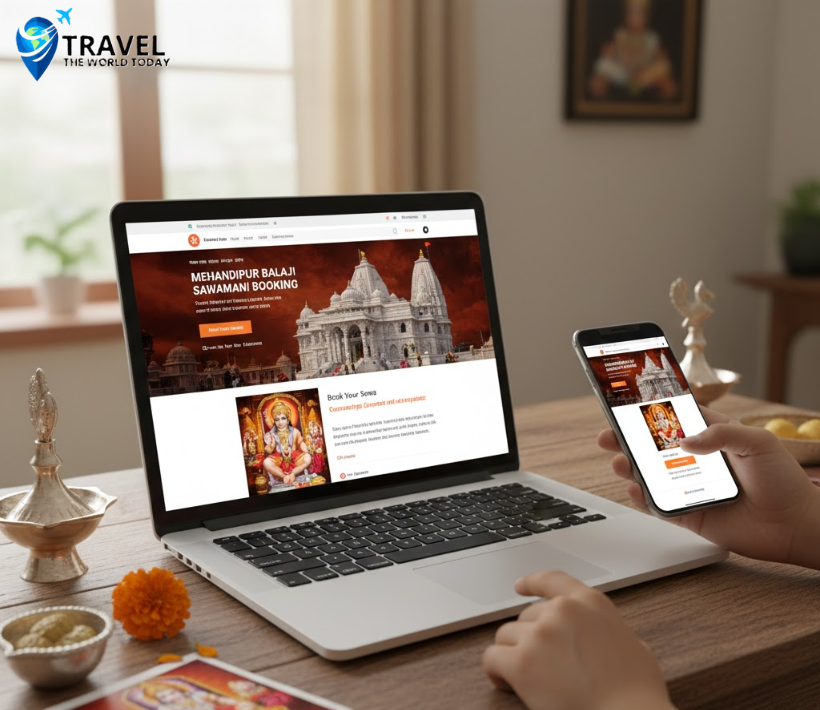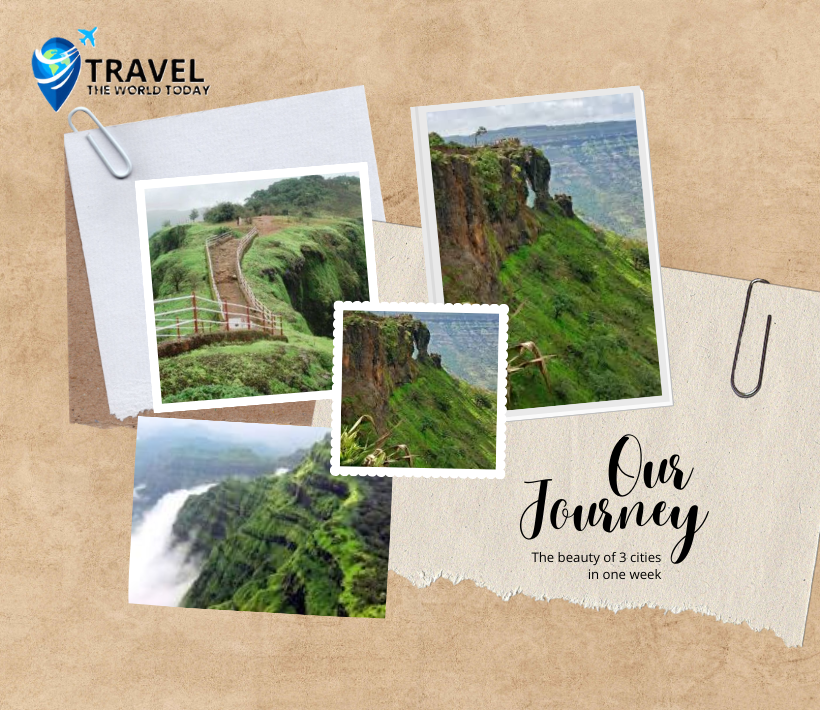How Do You Become a Travel Agent from Home and Start Earning Fast?
Introduction: The $10,000+ Monthly Opportunity You Can Start Today
Did you know that 72% of travelers prefer booking through travel agents despite the digital revolution? Even more surprisingly, home-based travel agents now represent over 80% of the travel agent workforce in the United States. The remote travel industry generated $8.9 billion in 2024, and experts project this number will reach $12.3 billion by 2027.
If you’ve been wondering how do you become a travel agent from home, you’re asking the right question at the perfect time. The travel industry rebounded dramatically, and the demand for knowledgeable, accessible travel advisors has never been higher. You don’t need a college degree, fancy office, or massive startup capital. You need the right roadmap.
This comprehensive guide reveals exactly how you can launch your home-based travel agent business quickly. Whether you want extra income or a full-time career, you’ll discover proven strategies to get started, attract clients, and start earning within weeks. Travel The World Today will guide you in every stage of your journey, from complete beginner to confident professional.
Let’s transform your passion for travel into a profitable home business.
What Does a Home-Based Travel Agent Actually Do?
Home-based travel agents help clients plan, book, and manage their travel experiences from the comfort of their own homes. You’ll work as an independent contractor or through a host agency, connecting travelers with airlines, hotels, cruise lines, and tour operators.
Your primary role involves understanding client needs and creating customized travel itineraries. You’ll research destinations, compare prices, and handle all booking logistics. You also provide valuable advice about travel requirements, insurance options, and destination-specific tips.

Daily Responsibilities and Tasks
Your typical workday includes responding to client inquiries via email, phone, or social media. You’ll spend time researching destinations and staying updated on travel industry changes. Many agents dedicate mornings to administrative tasks and afternoons to client consultations.
You’ll also process bookings through supplier systems and coordinate with vendors. Following up with clients before and after trips ensures satisfaction and generates referrals. Marketing your services through social media and networking events becomes part of your routine.
Types of Travel Agents You Can Become
Leisure travel agents focus on vacations, honeymoons, and family trips. They specialize in creating memorable experiences for recreational travelers. This niche offers the broadest client base and diverse opportunities.
Corporate travel agents manage business travel arrangements for companies. You’ll handle frequent bookings, expense tracking, and last-minute changes. This specialty provides steady income and repeat clients.
Niche specialists concentrate on specific travel types like luxury cruises, adventure tourism, or destination weddings. Specializing lets you command higher commissions and become an expert in your field. Popular niches include Disney vacations, European river cruises, and eco-tourism.
Why Becoming a Travel Agent from Home Makes Perfect Sense in 2025
The traditional travel agency model has evolved dramatically. Technology eliminated the need for expensive storefronts, making home-based operations more profitable. You can serve clients anywhere in the country without geographical limitations.
Remote work acceptance has skyrocketed since 2020. Clients expect virtual consultations and appreciate the convenience of working with agents across time zones. Your home office setup costs a fraction of traditional agency overhead while delivering identical services.
Financial Benefits and Earning Potential
Home-based travel agents typically earn 10-20% commission on bookings. A single luxury vacation package worth $10,000 generates $1,000-$2,000 in commissions. Cruise bookings often provide the highest commission rates at 15-18%.
First-year agents average $30,000-$45,000 annually part-time. Full-time experienced agents regularly exceed $75,000-$100,000. Top performers earning six figures focus on luxury travel or have established corporate client relationships.
You’ll also receive supplier incentives and bonuses. Many hotels and cruise lines offer familiarization trips, allowing you to travel at reduced rates. These “FAM trips” enhance your knowledge while providing personal vacation opportunities.

Flexibility and Work-Life Balance
Working from home means you control your schedule completely. You can take client calls during traditional hours or accommodate evening consultations. Parents appreciate the ability to work around school schedules without commuting.
You’ll invest time upfront building your business, but established agents often work 20-30 hours weekly. Many successful agents take extended personal vacations during slow seasons. Your income potential isn’t capped by hourly wages or salary limits.
Step-by-Step Guide: How Do You Become a Travel Agent from Home?
Starting your home-based travel agent career requires following specific steps in the right order. This proven process takes most people 2-4 weeks to complete before accepting their first clients. Let’s break down exactly what you need to do.
Step 1: Research the Travel Industry
Begin by understanding current travel trends and market demands. Subscribe to travel industry publications like Travel Weekly and Travel Market Report. These resources provide insights into popular destinations and booking patterns.
Study different travel segments to identify your interests. Research cruise lines, resort brands, and tour operators in your preferred niche. Join travel agent Facebook groups where professionals share real experiences and advice.
Follow successful travel agents on social media platforms. Notice how they present their services and engage with clients. This research phase typically takes 3-5 days of dedicated exploration.
Step 2: Choose Your Niche
Selecting a specific niche accelerates your success dramatically. General travel agents face intense competition from online booking sites. Specialists become the go-to experts for specific travel types.
Consider your personal travel experiences and passions. If you’ve visited Disney World multiple times, becoming a Disney specialist makes sense. Cruise enthusiasts should focus on cruise planning since they understand the unique aspects.
Popular profitable niches include:
- Luxury and high-end travel
- Cruise vacations (ocean and river)
- All-inclusive resort packages
- Adventure and eco-tourism
- Destination weddings and honeymoons
- Group travel and tours
- Accessible travel for seniors or disabled travelers
Your niche should align with your knowledge and target clients who value expert guidance. Affluent travelers seeking luxury experiences typically provide higher commissions than budget-conscious clients.
Step 3: Get Proper Training and Certification
While certification isn’t legally required, it establishes credibility with clients and suppliers. The Travel Institute offers the Certified Travel Associate (CTA) designation, which takes 6-12 months to complete. This certification costs approximately $699 and requires passing an exam.
The Certified Travel Counselor (CTC) represents advanced certification for experienced agents. Consider this after gaining industry experience. Many successful agents start working before completing formal certification.
Online training programs from organizations like Cruise Lines International Association (CLIA) provide free education. CLIA certification demonstrates cruise expertise and often grants access to exclusive supplier rates. Complete these courses during your first month.
Host agencies frequently provide proprietary training programs. These practical courses teach booking systems and sales techniques specific to their platform. Take advantage of all available training resources.
Step 4: Join a Host Agency or Start Independent
Host agencies provide infrastructure, supplier relationships, and support for independent contractors. You’ll work under their accreditation numbers while building your business. This option suits beginners perfectly since you avoid complex supplier applications.
Host agencies typically take 20-30% of your commissions but provide valuable resources. They offer booking platforms, marketing materials, and mentorship programs. Popular host agencies include Avoya Travel, Archer Travel Group, and Outside Agents.

Starting independently requires establishing direct supplier relationships yourself. You’ll need higher sales volume to gain supplier approval. Most beginners should join a host agency initially and transition later if desired.
Compare multiple host agencies before deciding. Evaluate their commission splits, fees, training quality, and supplier partnerships. Ask about technology platforms and marketing support provided.
Step 5: Set Up Your Home Office
Creating a professional workspace ensures productivity and tax deductions. Designate a specific room or area exclusively for business use. This separation helps maintain work-life boundaries.
Essential equipment includes:
- Reliable computer with updated software
- High-speed internet connection
- Professional phone line or VoIP service
- Printer/scanner for documents
- Comfortable desk and ergonomic chair
- Adequate lighting and organization systems
Your initial investment ranges from $1,000-$2,500 for quality equipment. Don’t compromise on internet speed since you’ll conduct virtual meetings and access booking platforms constantly. Invest in noise-canceling headphones for professional client calls.
Set up secure file storage systems for client information. Cloud-based solutions like Google Workspace or Microsoft 365 provide professional email addresses and document management. Budget $10-$20 monthly for these services.
Step 6: Build Your Online Presence
Modern clients research travel agents online before making contact. Your digital presence directly impacts booking rates. Start with a professional website showcasing your services and expertise.
Website builders like Wix or Squarespace offer travel agent templates for $15-$30 monthly. Include client testimonials, destination photos, and clear contact information. Many host agencies provide website templates you can customize.
Create business profiles on social media platforms where travelers spend time. Facebook and Instagram work best for travel agents since they’re visual platforms. Post destination highlights, travel tips, and client success stories regularly.
LinkedIn helps attract corporate clients and network with industry professionals. Join relevant groups and engage with travel industry content. Consistency matters more than perfection when building your online presence.
Step 7: Market Your Services
Marketing determines how quickly you’ll attract paying clients. Start with your personal network by announcing your new business. Friends, family, and former colleagues become your first potential clients.
Offer special promotions for your first 10 bookings. This strategy generates testimonials and referrals quickly. Ask satisfied clients to share reviews on Google and Facebook.
Effective marketing strategies include:
- Hosting virtual travel presentations
- Partnering with local businesses for cross-promotion
- Running targeted Facebook ads ($5-$10 daily)
- Creating valuable travel content through blogs or videos
- Attending networking events and community gatherings
- Offering free travel consultations to demonstrate value
- Building an email list with travel tips and deals
Focus on one or two marketing channels initially. Master those before expanding to additional platforms. Consistency produces better results than sporadic efforts across too many channels.
Essential Skills You Need to Succeed
Successful home-based travel agents share specific qualities that drive client satisfaction and repeat business. You can develop these skills through practice and commitment. Let’s examine the most important competencies.

Customer Service Excellence
Your ability to listen actively and understand client needs separates you from online booking engines. Clients want someone who cares about their travel dreams. Practice asking detailed questions about preferences, budget, and expectations.
Responsiveness matters tremendously in the travel industry. Reply to inquiries within 2-4 hours during business hours. Quick responses demonstrate professionalism and build trust with potential clients.
Problem-solving skills prove invaluable when travel disruptions occur. You’ll help clients navigate flight cancellations, weather delays, and booking errors. Remaining calm under pressure and finding solutions strengthens client relationships.
Sales and Negotiation
Travel agents are sales professionals who match products with customer needs. You’re not pushing unwanted services but recommending ideal solutions. Develop consultative selling skills by focusing on client benefits rather than features.
Learn to present options confidently and guide decision-making. Clients appreciate it when you narrow choices to their top three options. This approach prevents overwhelm and demonstrates your expertise.
Negotiation skills help secure better rates and upgrades for clients. Build relationships with hotel managers and tour operators. Your ability to add value through exclusive perks justifies your commission.
Technology Proficiency
Modern travel agents must navigate multiple booking platforms efficiently. You’ll work with supplier portals, customer relationship management (CRM) systems, and communication tools. Basic computer literacy is essential.
Learn popular Global Distribution Systems (GDS) like Saber, Amadeus, or Apollo. Host agencies provide training on these complex booking platforms. Mastery comes with practice and patience.
Social media proficiency helps you market services and engage clients. Understanding Facebook advertising, Instagram stories, and LinkedIn networking expands your reach. Don’t let technology intimidate you—most systems become intuitive with use.
Cost Breakdown: Investment Required to Start
Starting your home-based travel agent business requires a modest investment compared to traditional businesses. Understanding expenses helps you plan financially and avoid surprises. Here’s a realistic breakdown of startup and ongoing costs.
| Expense Category | Startup Cost | Monthly Ongoing | Notes |
|---|---|---|---|
| Training/Certification | $200-$700 | $0 | Optional but recommended |
| Host Agency Fees | $0-$500 | $0-$50 | Varies by agency |
| Technology (computer, phone) | $1,000-$2,500 | $0 | One-time purchase |
| Website & Email | $0-$300 | $15-$50 | Essential for credibility |
| Business Registration | $50-$300 | $0 | State-dependent |
| Errors & Omissions Insurance | $0-$400 | $25-$75 | Required by most hosts |
| Marketing Materials | $100-$500 | $50-$200 | Business cards, ads |
| Professional Memberships | $200-$500 | $0 | ASTA, CLIA, etc. |
| CRM Software | $0-$200 | $20-$100 | Client management |
| Total First Year | $1,550-$5,900 | $110-$475 | Wide range based on choices |
Most agents launch successfully with $2,000-$3,000 in initial capital. Your host agency choice significantly impacts costs since some charge monthly fees while others don’t. Many expenses qualify as tax deductions, reducing your actual cost.
Budget conservatively for your first three months while building clientele. Part-time agents often start with existing jobs, funding their business through regular income. Full-time agents should have 3-6 months of living expenses saved.

Top Host Agencies and How to Choose One
Selecting the right host agency accelerates your success significantly. These companies provide the infrastructure, supplier relationships, and support you need. Each agency offers different benefits and commission structures.
Factors to evaluate include:
Commission splits: Range from 60-90% depending on experience and sales volume. Higher splits mean more income per booking but might include fewer support services.
Monthly fees: Some agencies charge $0 monthly fees, taking only commission percentages. Others charge $25-$100 monthly but offer higher commission splits.
Training programs: Quality training varies dramatically between agencies. Look for comprehensive onboarding, ongoing education, and mentorship opportunities.
Supplier partnerships: More partnerships mean more booking options for clients. Verify the agency works with your preferred cruise lines, hotels, and tour operators.
Technology platforms: User-friendly booking systems save time and reduce errors. Request demonstrations before committing.
Marketing support: Some agencies provide website templates, social media content, and advertising materials. These resources jumpstart your marketing efforts.
Research agencies like Avoya Travel, Nexion Travel Group, Travel Planners International, and Archer Travel Group. Read reviews from current agents and schedule interviews with multiple agencies. Trust your instincts about company culture and support quality.
Legal Requirements and Business Setup
Operating legally protects you from liability and establishes credibility. Requirements vary by state, but certain steps apply universally. Complete these administrative tasks before accepting clients.
Licenses and Registration
Most states don’t require specific travel agent licenses. However, California, Florida, Hawaii, Iowa, and Washington have unique registration requirements. Check your state’s regulations through the Department of Commerce or similar agency.
Register your business name with your state. Sole proprietorships often operate under your personal name initially. Consider registering a “Doing Business As” (DBA) name for professional branding. This process costs $50-$150 depending on location.
Obtain an Employer Identification Number (EIN) from the IRS. This free number separates business and personal finances for tax purposes. Apply online through the IRS website in minutes.
Open a business bank account using your EIN. Keeping finances separate simplifies bookkeeping and tax preparation. Many banks offer free small business checking accounts.
Insurance Needs
Errors and Omissions (E&O) insurance protects you from client lawsuits related to booking mistakes or misunderstandings. Most host agencies require this coverage, which costs $25-$75 monthly. Annual policies often provide better rates.
Consider general liability insurance if clients visit your home office. This coverage protects against injury claims. Some agents bundle E&O and general liability policies for comprehensive protection.
Health insurance becomes your responsibility as an independent contractor. Explore marketplace options or spouse’s coverage. Budget this significant expense into your financial planning.
How to Find Your First Clients Fast
Attracting initial clients requires strategic effort and persistence. Most successful agents book their first clients within 2-3 weeks using these proven tactics. Let’s explore the fastest paths to paid bookings.
1. Announce to Your Personal Network
Share your new business with everyone you know. Post on personal social media accounts explaining your services. Friends and family become early supporters and referral sources.
2. Offer Free Travel Consultations
Provide complimentary 30-minute planning sessions to demonstrate value. Many prospects book after experiencing your expertise and personalized service. This low-risk offer converts well.
3. Join Local Community Groups
Participate in chambers of commerce, Rotary clubs, or parenting groups. Face-to-face networking builds trust faster than digital marketing. Offer to present on travel topics at group meetings.
4. Partner With Complementary Businesses
Connect with wedding planners, event coordinators, and corporate event managers. They need reliable travel agents for clients planning destination events. These partnerships generate consistent referrals.
5. Create Valuable Content
Write blog posts or create videos answering common travel questions. Content marketing establishes expertise and attracts organic traffic. Focus on your niche topics for better results.
6. Run Targeted Social Media Ads
Facebook and Instagram ads reach specific demographics interested in travel. Start with $5-$10 daily budgets targeting your ideal clients. A single booking easily covers weeks of advertising costs.
7. Ask for Referrals Consistently
Request referrals from satisfied clients immediately after successful trips. Most people happily recommend great service, but need prompting. Offer small incentives like travel accessories for referrals.
8. Attend Travel Industry Events
Supplier showcases and travel trade shows provide networking opportunities. Meet tour operators, hotel representatives, and fellow agents. These connections lead to collaborative opportunities.
9. Optimize Your Google Business Profile
Create or claim your Google Business listing with complete information. Encourage satisfied clients to leave reviews. Local search visibility generates inquiries from nearby residents.
10. Follow Up With Past Connections
Reach out to former colleagues, classmates, and acquaintances. People appreciate hearing about your new venture. Many become clients or provide valuable introductions.
Consistency beats perfection when acquiring clients. Dedicate 10-15 hours weekly to marketing activities during your first three months. Results compound as your reputation grows and referrals increase.
Tools and Resources Every Home-Based Travel Agent Needs
The right tools increase efficiency and professionalism dramatically. You don’t need every tool immediately, but these resources support growth. Let’s examine must-have and nice-to-have options.

Booking Platforms and Software
Your host agency typically provides access to booking platforms. Global Distribution Systems (GDS) like Saber or Apollo let you search and book flights, hotels, and car rentals. Learning these systems takes several weeks but becomes second nature.
Supplier direct booking sites complement GDS access. Major cruise lines offer agent portals with real-time inventory. Familiarize yourself with Royal Caribbean, Carnival, Norwegian, and your preferred suppliers.
Customer Relationship Management (CRM) software organizes client information and communications. Tools like TravelWorks, ClientBase, or even basic options like HubSpot help track interactions. Good CRM systems send automated follow-ups and birthday reminders.
Payment processing tools enable you to collect deposits and payments securely. Services like Stripe, Square, or PayPal Business integrate with invoicing systems. Always use secure payment methods to protect client financial information.
Where Can You Find the Best Travel Maps of the World for 2025?
Quality travel maps enhance client presentations and planning sessions. National Geographic produces exceptional world maps with detailed information for 2025. Their wall maps showcase countries, time zones, and geographical features clearly.
Digital mapping tools like Google Maps, Google Earth, and specialized travel mapping software provide interactive experiences. You can create custom maps highlighting client itineraries with multiple stops. These visual aids help clients understand their journey.
Lonely Planet and Rand McNally offer updated regional maps perfect for destination specialists. Their 2025 editions include current political boundaries and major infrastructure changes. Physical maps add a professional touch to your home office.
Travel The World Today offers comprehensive mapping resources and planning tools. Their platform combines destination information with visual mapping interfaces. These resources help you guide clients through complex international itineraries.
Purchase maps from retailers like Amazon, Barnes & Noble, or directly from National Geographic’s website. Budget $50-$150 for a quality collection covering your specialty regions. Digital subscriptions often provide better value than physical maps.
Common Mistakes to Avoid
New travel agents often make predictable errors that slow growth. Learning from others’ mistakes saves time and frustration. Here are the most common pitfalls and how to avoid them.
Not specializing quickly enough keeps you competing against everyone. General travel agents struggle to differentiate themselves in crowded markets. Choose your niche within your first month and commit to becoming an expert.
Underpricing services or working for free damages industry standards and your business viability. Your expertise has value even as a beginner. Always charge appropriate fees or earn commissions on bookings.
Ignoring contracts and documentation creates legal vulnerabilities. Use client service agreements outlining responsibilities, fees, and cancellation policies. Documentation protects both you and your clients.
Failing to maintain supplier relationships limits opportunities and support. Respond promptly to supplier communications and attend training sessions. Strong vendor relationships provide better rates and problem resolution.
Inconsistent marketing efforts produce inconsistent results. Dedicate specific time blocks weekly to marketing activities. Sporadic efforts rarely generate steady client flow.
Not investing in continuing education leaves you behind industry changes. Attend webinars, complete certifications, and stay current with travel trends. Knowledge directly impacts your earning potential.
Neglecting financial management causes tax problems and cash flow issues. Track all income and expenses meticulously from day one. Consider hiring a bookkeeper or accountant familiar with travel industry finances.
Real Income Expectations: What You Can Actually Earn
Understanding realistic income projections helps you plan finances and set goals. Earnings vary significantly based on effort, niche, and experience. Let’s examine what you can actually expect at different stages.
First year part-time (10-15 hours weekly): Most agents earn $15,000-$30,000. You’ll spend considerable time learning systems and building a client base. First-year income often supplements other earnings rather than replacing full income.
Second year part-time: Income typically grows to $30,000-$50,000 as referrals increase. You’ll work more efficiently and build repeat clients. Many agents transition to full-time during year two.
Full-time established agents (3+ years): Average earnings range from $50,000-$75,000 annually. Successful agents focusing on luxury travel often exceed $100,000. Top performers earning $150,000+ typically specialize in high-end markets.
Commission structures vary by product:
- Hotel bookings: 10-15% commission
- Cruise packages: 10-18% commission
- Tour packages: 10-15% commission
- Flights: $5-$50 per ticket (when commissioned)
- Travel insurance: 20-40% commission
Income fluctuates seasonally with peak booking periods January-March and September-October. Smart agents develop multiple income streams including consulting fees, planning fees, and commission earnings.
Planning fees of $50-$500 help monetize time regardless of booking. Many agents charge non-refundable research fees that apply toward bookings. This strategy ensures compensation for work performed.
Remember that income depends directly on effort and strategy. Agents treating this like a hobby earn hobby income. Those approaching it professionally with consistent marketing and excellent service build substantial income streams.
Conclusion: Your Journey Starts Now
Understanding how do you become a travel agent from home is just the beginning. You now have the complete roadmap from absolute beginner to earning your first commissions. The opportunity is real, the timing is perfect, and the path is clear.
Thousands of people just like you launched successful home-based travel businesses using these exact strategies. You don’t need special connections, extensive travel experience, or large capital investments. You need commitment, willingness to learn, and consistent action.
Start today by choosing your niche and researching host agencies. Dedicate your next two weeks to completing the initial setup steps. Your first client is closer than you think, probably within your existing network.
The travel industry rewards specialists who provide genuine value to clients. Technology can’t replace the personalized service, insider knowledge, and problem-solving abilities you’ll develop. Your role as a trusted travel advisor matters more than ever.
Travel The World Today stands ready to guide you through every stage of your journey. From initial training to advanced marketing strategies, comprehensive resources support your success. Join thousands of thriving home-based agents who transformed their passion into profit.
Your home-based travel agent career starts with a single decision. Make it today. Research host agencies this afternoon, complete one training module tonight, and announce your business this week. Small, consistent actions create remarkable results.
Ready to launch your home-based travel business? Take action now—choose your niche, contact a host agency, and start your training this week. Your future clients are waiting for exactly the expertise you’ll provide.
Frequently Asked Questions
Do you need a license to become a travel agent from home?
Most states don’t require specific travel agent licenses. A few states, including California, Florida, and Hawaii, have registration requirements. Check your state’s regulations through the Department of Commerce. Your host agency guides you through any necessary registrations.
How much does it cost to become a travel agent from home?
Starting costs range from $1,500-$4,00,0, depending on choices. This includes training, equipment, registration, and initial marketing. Many agents start part-time to fund their business through existing income. Host agency fees vary from zero to several hundred dollars annually.
Can you really make money as a home-based travel agent?
Yes, thousands of agents earn substantial income working from home. First-year part-time income averages $15,000-$30,000. Full-time established agents often earn $50,000-$100,000+ annually. Income depends on your niche, marketing efforts, and client service quality. Success requires treating this as a real business rather than a hobby.
How long does it take to become a travel agent from home?
You can start accepting clients within 2-4 weeks. This includes researching, choosing a host agency, completing basic training, and setting up your business. Formal certifications take 6-12 months but aren’t required to begin. Many successful agents start working while pursuing certification.
Do travel agents get free trips?
Travel agents receive discounted rates and familiarization (FAM) trips, not entirely free travel. Suppliers offer reduced rates for agents to experience products firsthand. You’ll pay some costs but save 50-90% on normal prices. These trips serve as research and professional development opportunities.
What’s the difference between a host agency and an independent?
Host agencies provide infrastructure, supplier relationships, and support for independent contractors. You work under their accreditation while building your business. Independent agents establish direct supplier relationships themselves, requiring higher sales volumes. Most beginners benefit from joining a host agency initially.
Do I need special training to specialize in cruises?
Cruise certification from CLIA (Cruise Lines International Association) provides credibility and knowledge. The free online courses take several hours to complete. Many successful cruise agents complete CLIA certification plus attend cruise line training sessions. Specialization training dramatically improves confidence and sales effectiveness.
How do home-based travel agents find clients?
Marketing strategies include personal networking, social media presence, content creation, and paid advertising. Most agents start with friends and family referrals. Building an online presence through Facebook and Instagram attracts broader audiences. Consistent marketing efforts and excellent service generate word-of-mouth referrals.

Hi, I am Raghav Ahuja a curious explorer, travel enthusiast, and the voice behind Travel The World Today. I believe in discovering the beauty of every destination without breaking the bank. Through my journeys, I share tips, stories, and travel guides to help you explore the world on a budget. Whether you’re a solo adventurer, a family traveler, or just planning your next escape, I’m here to inspire and guide you every step of the way.




Post Comment